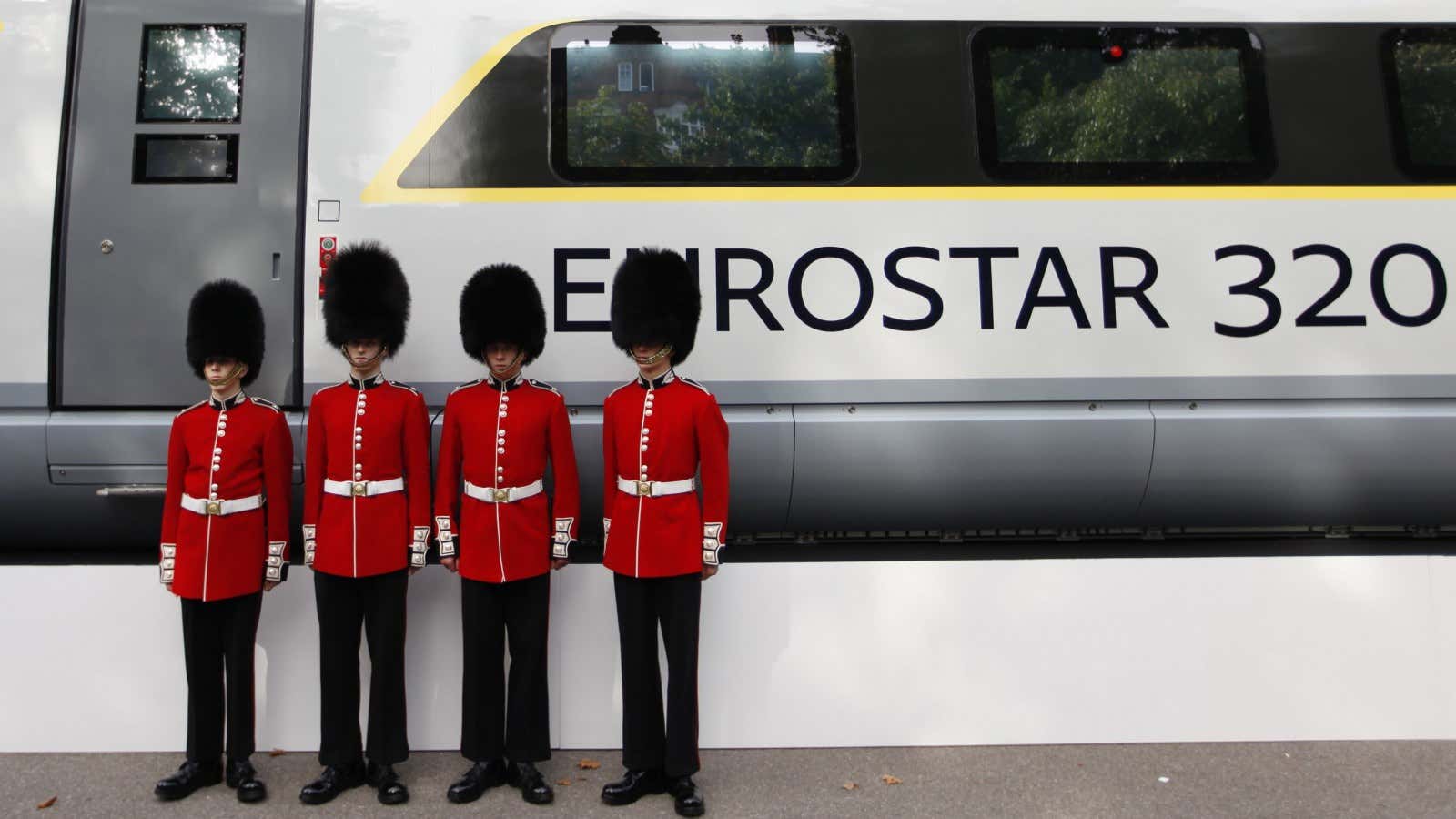Eurostar became a monument to international collaboration back in 1990, when French and British workers met underneath the English Channel and shook hands through a hole in the earth. Now, the UK government is quitting the train operator by selling its 40% stake to a consortium of pension funds, as part of a drive to raise cash to pay down its debts.
The government said today that it would sell its entire stake to a group of British and Canadian funds for £757 million ($1.2 billion). The latest government accounts valued the shares at £325 million, Reuters reported. UK treasury chief George Osborne described the agreement as a “fantastic deal” that “exceeds expectations.”
The timing of the deal catches buyers hungry for assets in an environment where many traditional investments are offering historically meager returns. The perky UK economy has been boosting passengers and sales at Eurostar, which will remain majority-owned by the French government. (Under a shareholding agreement, the company’s existing owners, the French and Belgian governments, can buy the stake themselves if they pay 15% above the price agreed with the pension funds.)
When Eurostar went on sale in October, the BBC noted that it would likely be the British government’s last privatization before the general election in May. It comes after the government privatized the Royal Mail postal service in 2013 and has pushed to introduce more competition to the National Health Service.
The treasury has said it wants to raise £20 billion from selling off assets between 2013 and 2020, but the British people will have to give the Conservatives another term in power to see whether that ambition is achievable. The postal privatization controversially left £1 billion on the table when shares soared after an underpriced initial public offering. And even bullishly priced sales like the Eurostar deal won’t put much of a dent in the national debt, which currently stands at around £1.5 trillion.
